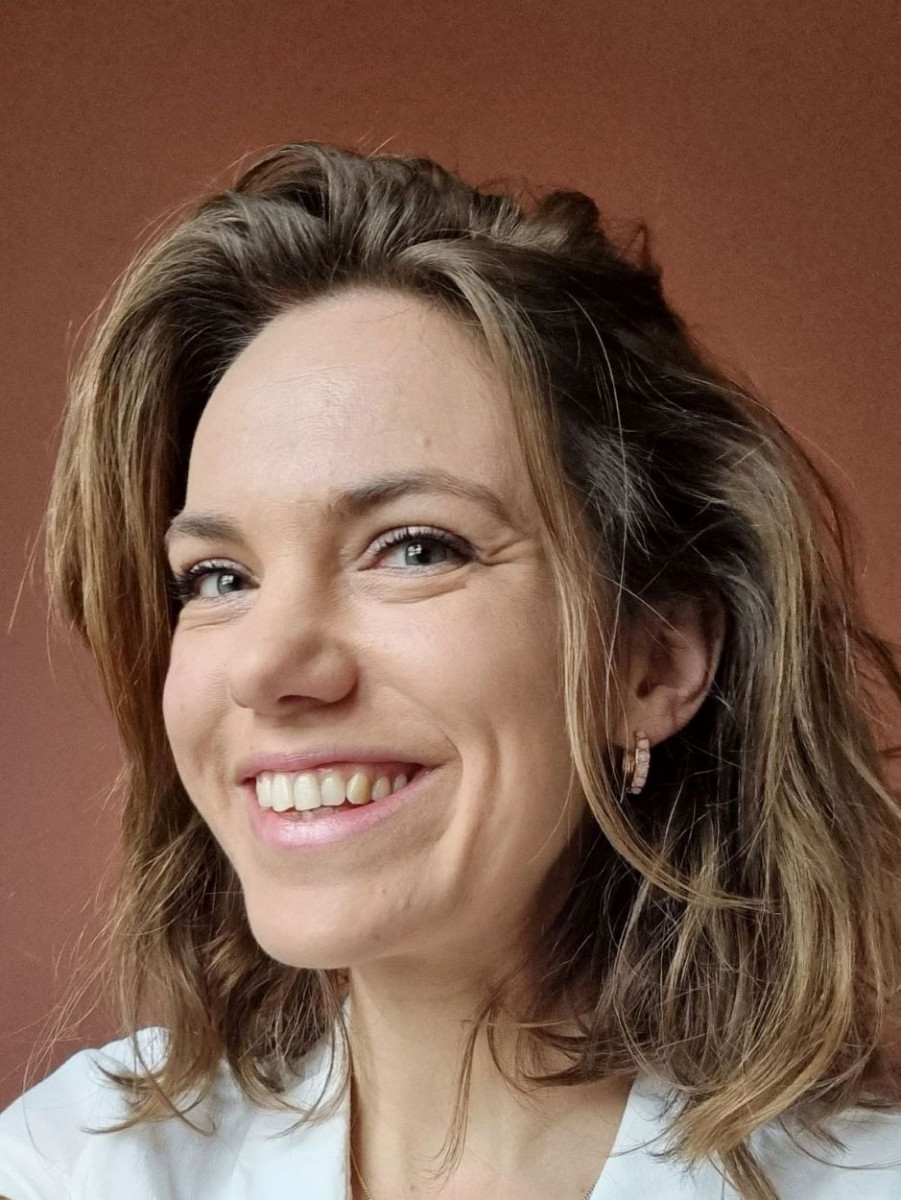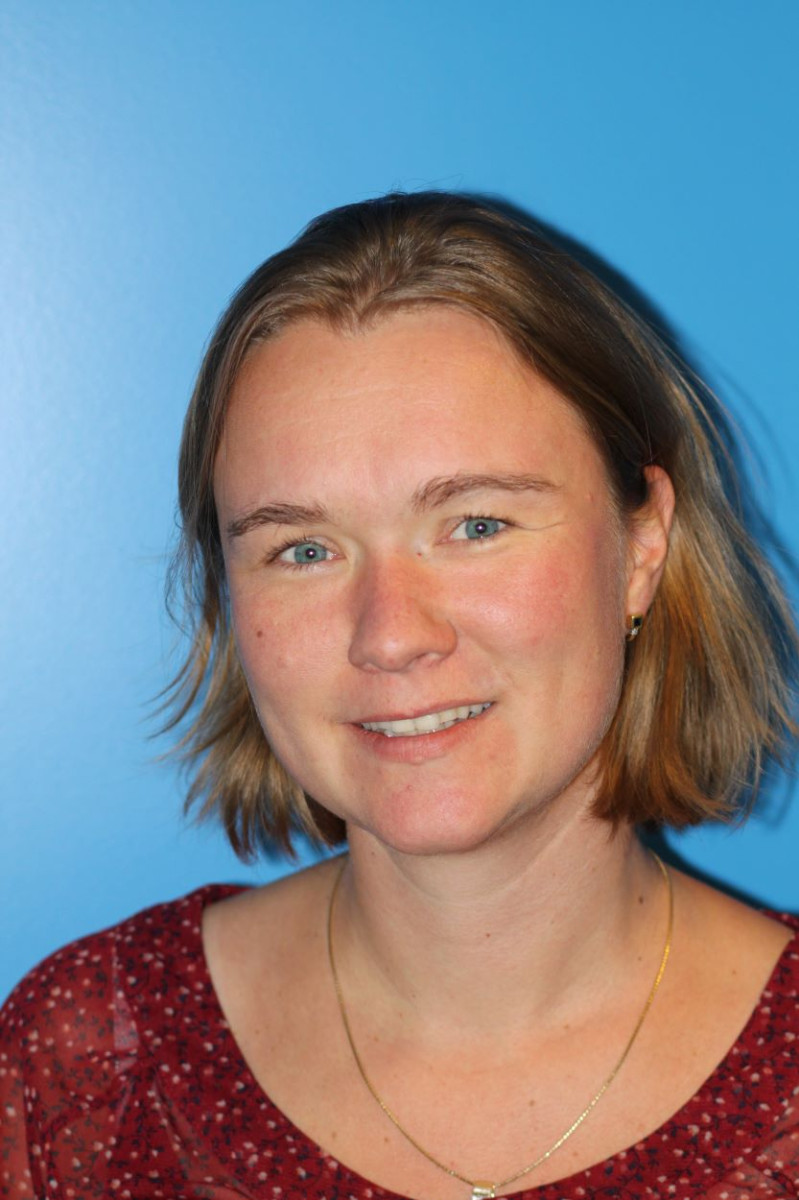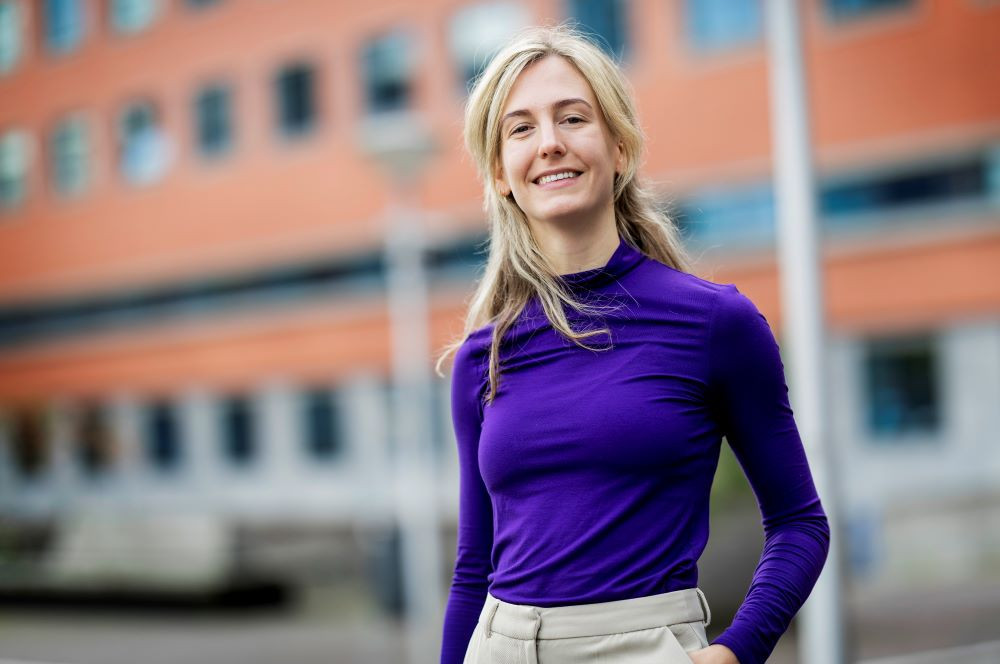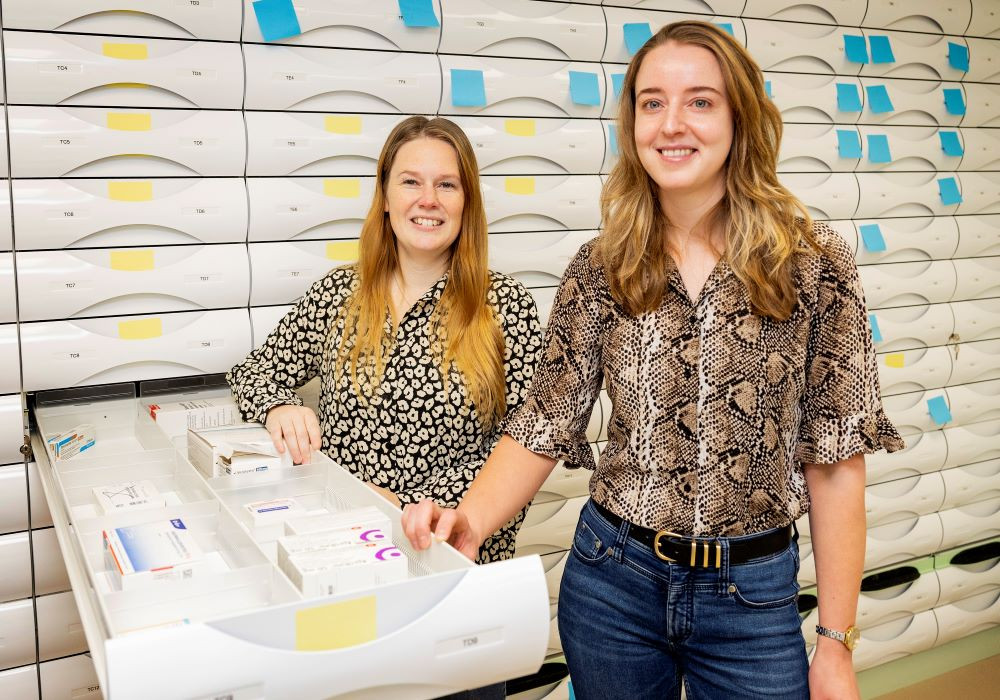Environmental impact to be included in package leaflets accompanying medication
Inholland investigates: practical guidance helps health care professionals make greener choices when it comes to medication

Before taking a particular medicine, you naturally want to know everything about its effects on your body and any adverse reactions your body may have to it. But have you also considered the adverse effects on the environment and the climate? An increasing number of physicians, medical specialists and other prescribers are now considering this aspect. However, they currently do not have the practical information they need in order to be able to factor in environmental impact as a criterion. Through a major European research project, Inholland University of Applied Sciences and Amsterdam UMC plan to unearth that information and include it in higher professional education and university education curricula.
Dit artikel in het Nederlands lezen? Klik dan hier.
Healthcare has a major impact on the climate. In the Netherlands, the industry is responsible for around seven per cent of all CO2 emissions. Roughly 40 per cent is related to medicines and other chemicals. Not only the production and transport, but also the use of medication has a direct impact on the environment. For instance, some inhalers emit greenhouse gases that are far stronger than CO2. We also know that hormones in the contraceptive pill end up in surface water after use, causing large-scale sex changes in fish. And these are just a few examples.
Let’s give healthcare professionals practical guidance, so that caregivers and patients can make sustainable choices.
Prescribing in a more environmentally friendly way
According to Jelle Tichelaar, endowed professor of Interprofessional Collaboration and Medication Safety at Inholland University of Applied Sciences, the time is ripe to take the consequences for the environment and climate into account when prescribing medicines. ‘We know the detrimental effects some medicines have. You see this throughout the world. In India, for example, residues of a well-known analgesic in cow carcasses have led to the mass death of vultures. That’s why we need to start investigating the effects. However, we shouldn’t sit back and wait until the research outcomes are in. We need to be more environmentally aware already when dealing with medicines, including by avoiding the need to prescribe them. This will mean a greater focus on prevention, such as encouraging healthier lifestyles.’
Practical guidance
Jelle is not alone. He has noticed increased awareness among both current and future professionals. ‘Let’s do something with that awareness now and give healthcare professionals practical guidance they can really work with. One way to do this is by recording for each medicine not only the effectiveness, adverse reactions, applicability and costs, but also the environmental impact. This way, the caregiver and the patient can make a sustainable choice when deciding between similar medicines.’
Ask producers for sustainability information and choose the most transparent party.

Major European research
Jelle is in charge of the new European Erasmus+ Planetary Health Education in Prescribing project. Dozens of partners and associate partners in the Netherlands and Europe will be working together over the next three years to identify and weigh the aspects of medication that are detrimental to the environment and the climate, and make available as much information as possible for each medicine so that this can be included in medical degree programmes.
Lack of data
Choosing the most environmentally-friendly medicine is not that simple. This is because the impact of the vast majority of medicines is unknown. ‘We’re only at the beginning of the life cycle analyses to determine the impact of medicines on the environment,’ says Susanne Waaijers, researcher at the Dutch National Institute for Public Health and the Environment (RIVM). ‘We’ve noticed a growing need for knowledge among healthcare professionals and are keen to provide them with information, but for the most part we’re also in the dark ourselves. In particular, there are still few or no data on the production of medicines. Examples include not only the ingredients used, but also the energy consumed by factories and during transport.’
Demanding transparency
According to Waaijers, some pharmaceutical companies are showing a cautious willingness to provide transparency, but to maintain their competitive position, they are willing to do so only if that transparency is organised collectively. She sees an opportunity here for the procurement departments of healthcare institutions. ‘Ask producers for sustainability information and choose the most transparent party. Perhaps this will bring about a broad movement that puts pressure on producers to perform life cycle analyses of their products. We have good systems for recording medication data at the national level, through the Medicines Evaluation Board, and at the European level, through the European Medicines Agency. Those could also provide opportunities for gathering that information.’
The biggest leap we can make now is to look critically at the procurement and use of medication.

Procurement and use
The most sustainable option of all, of course, is to use no medicines at all or far fewer. ‘The biggest leap we can make now is to look critically at the procurement and use of medication,’ says Hilde Jalving of the European Society for Medical Oncology (ESMO). ‘Prescribe medication only when there’s a really clear indication for it. For example, is it really sensible to choose medication that gives cancer patients just a few weeks extra if they also suffer many adverse reactions in the process? Avoid wastage by giving out medication for a month at most. Also consider how long patients need to continue taking medication. Investigate reuse possibilities. If you give cancer patients clear storage instructions, they turn out to be very careful with their medication. The method of administration is also important. From an environmental point of view, tablets are preferable to infusions, because infusions involve additional waste and trips by patients to the outpatient clinic.’
Sustainability in pharmacotherapy
Hilde is aware of the importance of limiting the impact on the environment and climate. ‘This is also because a poor environment and global warming pose risks to the health of all of us.’ To equip current and future professionals with this message and concrete possibilities for action, it is important that education embraces this topic. Jelle is providing a framework for this. As well as being a professor at Inholland, he is also an associate professor and coordinator of teaching and research in the Internal Medicine department of Amsterdam UMC and lecturer for Inholland’s Advanced Nursing Practice and Physician Assistant Master’s programmes. ‘Clinical reasoning, and pharmacotherapy in particular, are tricky components for students: how do you make the right decision in a short time to prescribe medicines that are in keeping with the clinical picture and situation of an individual patient? Based on case histories and through a great deal of practice, we teach them to make choices under time pressure, when there are many factors they have to consider. Sustainability is one such factor.’
It’s also about awareness, critical thinking and taking responsibility.
Future professionals
Jelle’s immediate colleague at Amsterdam UMC is physician, lecturer and researcher Joost Piët, who is also responsible for the day-to-day coordination of the Erasmus+ research project. ‘With the knowledge we gather about the environmental impact of medication, we plan to create teaching materials and courses for lecturers so that we can reach as large a group of future professionals as possible.’ Joost has no complaints about interest in the subject. ‘Even before the project started, we were approached by other universities. We’ve struck a chord, which is promising. What we need to do now is ensure that the knowledge continues to develop even when this project ends in three years’ time.’
Our actions affect the planet and therefore everyone’s health.

Climate-aware students
A topic such as sustainability of medication has certainly struck a chord with CO2 Assistant: a national group of medical students whose aim is to integrate planetary health and sustainable healthcare into the medical curriculum. ‘Our aim is to have a green thread running through the degree programmes. Pharmacotherapy is an important and recurring theme within that,’ says Eva van der Heide, now a graduate physician. ‘Among other things, we can contribute by highlighting the questions students currently have to deal with: how do you prescribe appropriately, how do you avoid wastage? The aim is to join forces with the Pharmacotherapy department and examine the available literature on the environmental impact of medication. This way, Bachelor’s students will be taught what’s already known and be able to consider this material critically. Education is the best tool for change.’
Taking responsibility
Tomás van Emden is the chair of CO2 Assistant at VU Amsterdam: ‘It would be great if, as is the case with effectiveness and cost, information on the sustainability impact of a medicine ended up in the Farmacotherapeutisch Kompas, a reference work for medical professionals who prescribe. Our actions affect the planet and therefore everyone’s health.’ Eva: ‘Although the impact of medication is not entirely clear yet, we can’t just wait around. It’s also about awareness, critical thinking and taking responsibility.’
It would be a good idea to pay attention to the environmental impact of medication right at the beginning of your training.

Inholland University of Applied Sciences Master’s students
Master’s students at Inholland University of Applied Sciences from the Advanced Nursing Practice and Physician Assistant programmes are also learning to prescribe medication correctly. ‘I work in a general practice,’ says Merlynn Huisman, a second-year student of Inholland’s Master’s programme in Advanced Nursing Practice. ‘I’m conscious of sustainability when prescribing medication there. For instance, I favour powder inhalers over metered dose aerosols for COPD and asthma patients. I also dispense medication in doses, issuing a quantity for one instead of three months on the first occasion.’ Fellow student Larissa van Schaik works at the OLVG hospital in Amsterdam with patients with autoimmune diseases. ‘For these patients, I prescribe medication continuously. It’s important to keep an eye on the quantities and different types of medication. Can you reduce polypharmacy (where someone takes five or more different medicines at the same time for a fairly long time, ed.)? It would be a good idea to pay attention to this right at the beginning of your training, so that exercising caution when prescribing and thinking about the environmental impact of medication becomes a habit.’
Resilience and leadership
We will stay healthy only if the world around us stays healthy. That is why the environmental impact of medication matters. Jelle: ‘Even though research into this is not our speciality, the research group is our way of assuming responsibility and showing leadership and resilience, so that we can take action and make some improvements in people’s lives and the environment in which they live.’ Joost: ‘Resilience also means that we’re forming a movement to persuade physicians, specialists and other prescribers to make sustainable choices. In this way, we also hope that the pharmaceutical industry will further adapt its production and development processes to the increasing demand for more sustainable medication.’
At Inholland University of Applied Sciences, our focus is on a resilient society. This is a society in which we work together to not only withstand shocks, but also use them as an opportunity to develop further. Through Inholland investigates, we tell stories about how we contribute with our research to creating a society with the ability to change, together with students and partners from the professional field, so that everyone can continue to function in a constantly and rapidly changing world.


